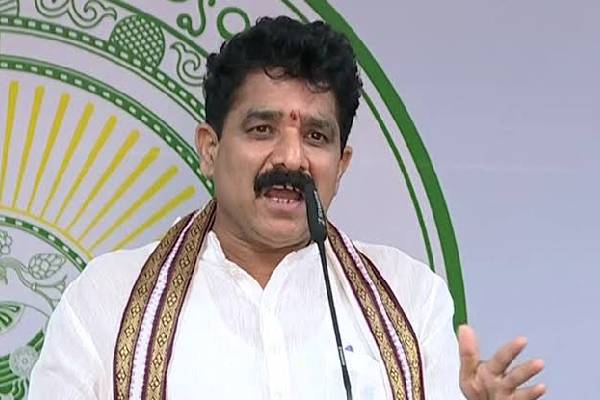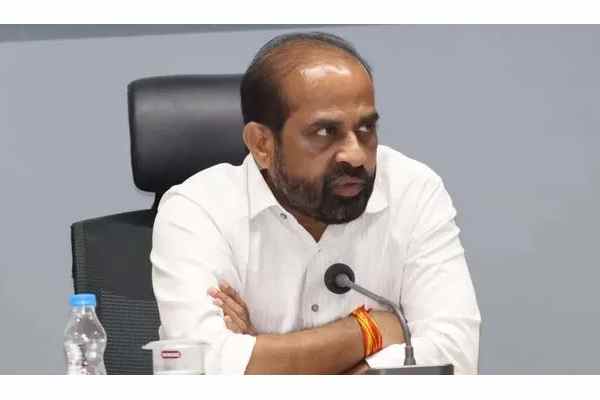The ruling YSR Congress in Andhra Pradesh threw an open challenge to the opposition TDP on the Amaravati issue. Two of the ruling party MLAs have said that they are ready to quit their posts and seek re-election in support of three capitals and dared the TDP MLAs to quit and seek re-election.
Former minister Avanti Srinivas and government whip Karanam Dharmasri have announced that they are ready to resign and seek re-election on decentralisation and three capitals issue. They dared the TDP MLAs to resign and seek re-election on Amaravati as the only capital.
Government whip Dharmasri had given his resignation letter to the Joint Action Committee leaders at the meeting and dared the TDP MLAs to follow suit. He asked TDP AP Unit president and Tekkali MLA K Atchennaiadu to give his resignation and seek re-election if he is committed to the development of Amaravati as the only capital for the state.
The ruling party organised a round table conference in Visakhapatnam on Saturday where a joint action committee was formed. The joint action committee had resolved to organise a massive rally in the city in support of three capitals. The speakers asked the State government to speed up the process of declaring Visakhapatnam as the administrative capital of the state.
As the padayatra of the Amaravati farmers is approaching Visakhapatnam, the meeting resolved to organise protests and rallies in support of decentralisation plans of the government. The first rally would be held on October 15 in Visakhapatnam.
The JAC was also asked to organise a wide range of programmes in the state in support of decentralisation and three capitals. They strongly argued that decentralisation would help spread the fruits of development equally to the three regions of the state.
The meeting also requested the state government not to repeat the mistake committed in Hyderabad by concentrating the development of only Hyderabad ignoring other parts of the state.
As the ruling party MLAs have offered to quit and seek re-election, it is now to be seen how the TDP would respond.


































